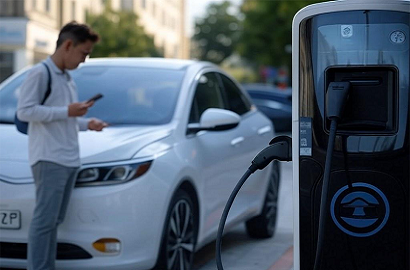Public charging network grows 32% in Spain during 2024

The electrification of cars in Spain continues at a positive pace.
The electrification of vehicles in Spain is continuing at a positive pace, according to data from the electromobility barometer for the fourth quarter of 2024, published by the Spanish Association of Automobile and Truck Manufacturers (Anfac). Both the number of passenger cars sold and the network of public charging points, which are essential to ensure the system’s sustainability, grew last year.
The public charging network grew by 32% last year. The 9,424 new charging points brought the total number to 38,725 operational points. Anfac argues that this network has yet to accelerate its growth, and recalls that there are a further 11,446 charging points installed that are not operational for various reasons. If operational, they would make it much easier to achieve the ambitious targets set for this network, which aimed to reach 64,000 points by 2024.
Rapid and ultra-rapid charging
Anfac does in any case consider¡ that the current network is sufficient to serve existing needs . Moreover, it stresses that growth last year accelerated in rapid charging points in particular. Ultra-rapid charging points, equal to or greater than 150kW, did in fact increase from 1,525 in 2023 to 3,255 in 2024, and already account for 8.4% of the total. As for chargers of 250kW and above, 816 were installed, and now total 1,437.
According to Anfac, the growth of the rapid charging network is essential for true deployment of electric vehicles. Compared to the minimum of three hours to charge a car using conventional chargers, 150kW chargers reduce the charging time to less than half an hour, while the process for 250kW chargers is similar in time to traditional refuelling. In addition, these chargers will be needed to serve future electric vehicles for heavy goods and passenger transport, which will not be able to use chargers with less than 150kW of power.
Global electromobility indicator
The global electromobility indicator, which measures the penetration of electric-powered vehicles in the market and the installation of public charging infrastructure, reached 15.5 points out of 100 last year, after closing the year with a growth of 1.7 points. This evolution, slightly above the European average, contributes to Spain's approaching convergence with the rest of the continent, where penetration is already at 29 points.
Sales of electric passenger cars also contributed to improving this indicator, which stood at 115,935 units, slightly up from 113,784 in 2023. Among the total number of passenger cars, electric vehicles obtained a market share of 11.4%.
The Chief Executive of Anfac, José López-Tafall, considers the progress to be positive but said, “It is clear that we are in a European race and we have to speed up. The deployment of electric vehicles not only represents an opportunity, but is also a necessity to maintain the competitiveness of the automotive industry in Spain and Europe, so we must increase the pace.”
Photo: Anfac




